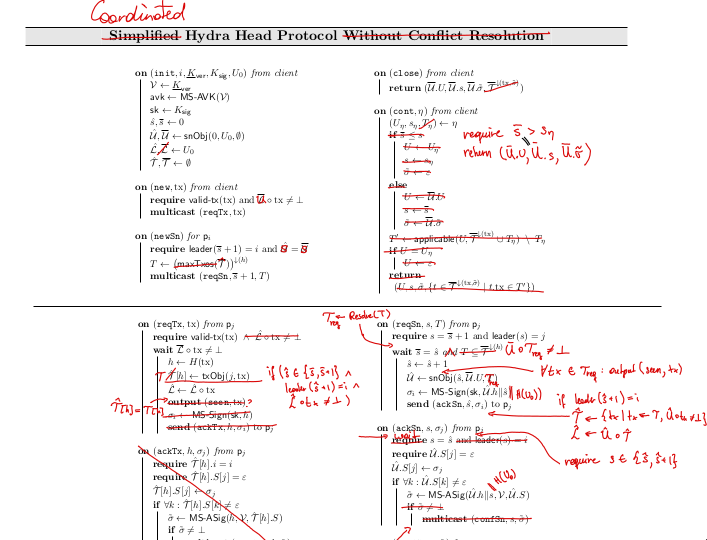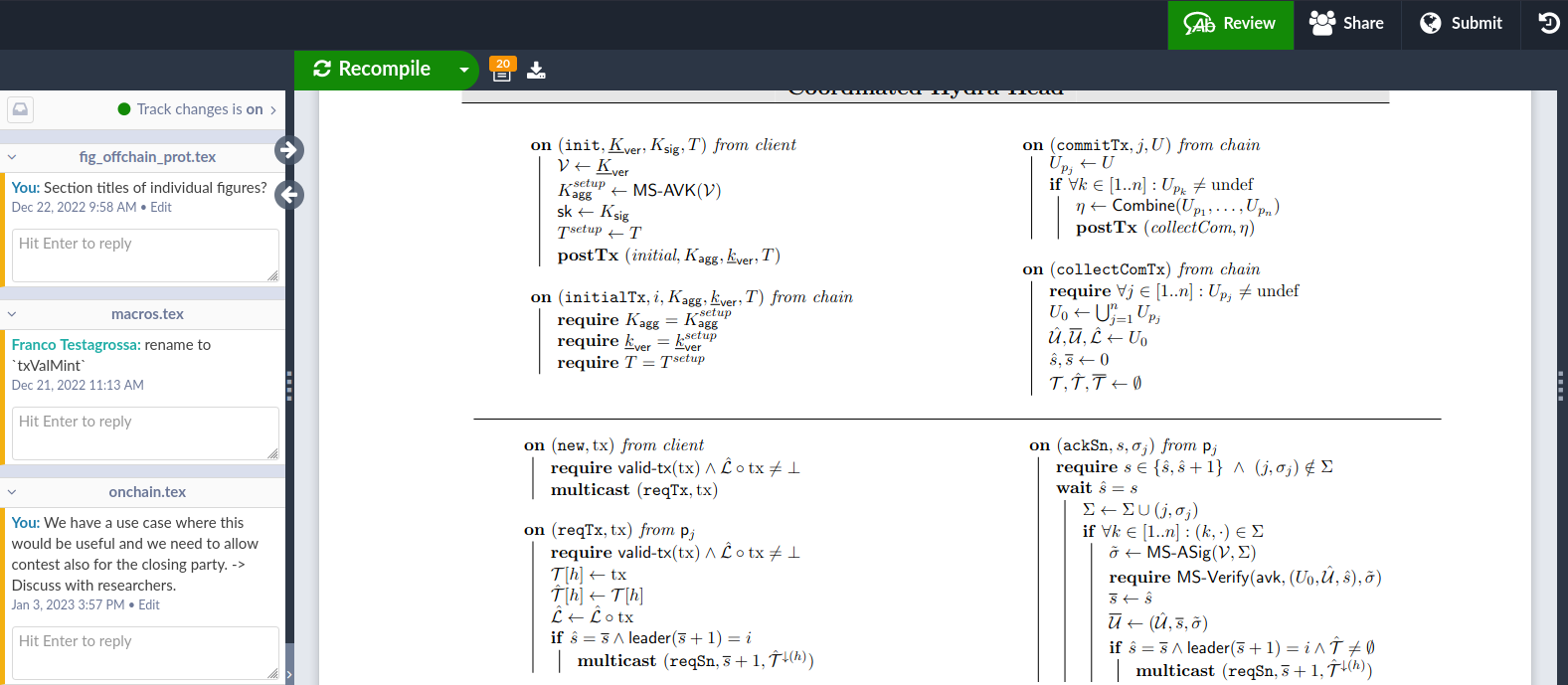This report summarizes the work on Hydra since November 2022 and also serves as a preparation & write-up of the monthly review meeting, in which we update major stakeholders of the project on recent developments and gather their feedback on our proposed plan forward each month.
Roadmap
Looking at our roadmap we can report the following updates:
Notable changes
- Completed Validate coordinated head protocol against formal model #194
- Detailed a follow-up Validate soundness with Model Based Testing #656
- Focus on specification and gap-closing to support audit
- Scoped down 0.9.0 to be only about script updates and moved Commit from external wallet #215 into next version
- Groomed React to mainchain protocol changes #195
- More users requesting Support timed transactions #196

Latest roadmap with drafted 0.10.0 version.
Development
Issues closed since last report
This month we have been working on:
-
Fixed
AcquirePointTooOlderrors by changing the way the internal wallet initializes its state #621. See the PR description for details. This did not strictly happen this month, but we have not mentioned it last time. -
Closed first gap in Head Contract: We collected gaps between specification and current implementation in #452 and started now closing them. This first issue, was to prevent DoS / stalling of heads, by bounding the lower and upper transaction validity time of the
closetransaction. As always, time handling is hard and this required detailed discussion in the form of an ADR. See ADR21 for more details. -
Reduced cost of commits by at least 30% using reference scripts also in the
committransaction. We only used reference scripts inabortso far. This reduces the min ADA cost ofcommitbecause the transactions are roughly 5.2KB smaller.Before:

After:

-
Use nix flakes & build docker images using nix: Triggered by a migration to Cicero for a nix-based CI, we started using nix flakes for
nix buildandnix developinstead of the legacynix-shellin #646. While we ended up sticking with Github Actions as the only CI and a Cachix cache, we extended this work to build our docker images more efficiently usingnixin #654.Image sizes went down between 20-50%:

While docker CI builds on
masterwent down to 1-10min (from 10-30m+)!
Hydra V1 Specification
Finally, we bit the bullet and started a write-up of the specification. Over the last couple of months we had worked with marked up versions (see below) of the original paper and a GDoc to discuss and review the protocol as it was implemented.

As we also updated the security properties and proofs, we started aggregating a LaTeX document on overleaf. While it holds a similar background and preliminaries as the original paper, it only specifies a single version of the protocol with no variants, less modularization, as well as explicit assumptions and important notes for implementors.

We aim to be publishing the spec as part of the main hydra repository soon.
Community
-
Hydra for Payments project completed the first phase of this work stream by tagging version 0.1.0. This open source project conducted by Obsidian Systems and sponsored by IOG created a great starting point for developers to build services/APIs of payment channels using Hydra Head. This month we reviewed the improved documentation and are looking forward to see this work applied to eventually build fast & cheap payments for light-wallet users and power payment channel use cases from business-to-business (B2B) in the short-term.
-
Hydra for Voting project kicked off this joint project between IOG Research, Catalyst & Hydra Tribes, and the Cardano Foundation. The goal is to assess suitability of Hydra Head to support voting use cases by implementing parts of Catalyst voting system on Hydra Head and benchmark execution at scale. The kick-off meeting took place on December 15.
-
Blog post by CF: To round off the year, Matthias wrote a nice retrospective blog post about Hydra at the CF. Besides summarizing our progress made in 2022 it also gives an outlook where Hydra is headed for in 2023.
Conclusion
Although Hydra is in essence an open source project right now, we would love to make it "even more open source" in the coming months. Our vision of Hydra requires to have the builders of the Cardano ecosystem to be part of this journey. For that matter, we want not only to open up these monthly reports, but the review meeting backing it as well!
This, besides our engagements with the community above, will allow the project to grow beyond IOG & CF contributions. To become the true Cardano open source project we believe will be worthy to serve as the scalability component required by the Cardano network.
